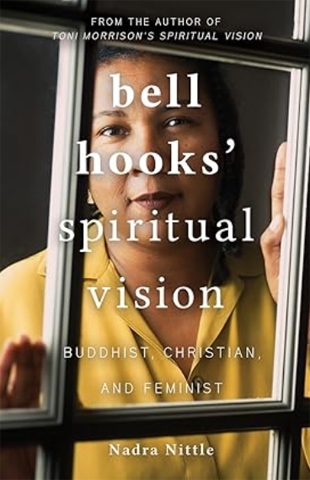This intriguing, short book will serve readers who are new to bell hooks (this is the pen name, always lowercased, by which she was consistently known), as well as hooks’ already devoted readers. We found it important for spiritual practices discovered by author Nadra Nittle at the heart of hooks’ discussions of race, class, inequality, and gender.
Another Nadra Nittle book, Toni Morrison's Spiritual Vision, earned one of our 2021 “Best Spiritual Books” awards.
Nittle presents bell hooks in ways that bring forward this essential American writer's commitments to spiritual practices — most of all on the subject of love. Nittle explains in a chapter titled “New Visions of Romance and Relationships”:
“To normalize a definition of love that goes beyond 'falling in love,' hooks suggests that people drop the phrase, though in a way that doesn’t prevent them from discussing when they feel a spark with someone. She recommends that people say, 'I’ve connected with someone in a way that makes me think I’m on the way to knowing love' instead of 'I think I’m in love.' Alternatively, one might say 'I am loving' or 'I will love' instead of 'I am in love.' “
Nittle continues: “These changes have the potential to get people to recognize love as a lasting and spiritual force rather than a passing feeling.”
The chapter before this one, “Love Is Everything,” offers more on the subject, starting with a helpful introduction to hooks’ essential book, All About Love. In that work, hooks offers the following teaching, which is both rare and useful: “Knowing how to be solitary is central to the art of loving. When we can be alone, we can be with others without using them as a means of escape.”
Placing a classic work of Black, American, feminist spirituality in historical, theological, and ideological context, Nittle also demonstrates how hooks’ purpose in All About Love is primarily aimed at spiritual practice. We live, hooks explains, in “a culture that is dead to love,” and love between two people is about “recognition where we can face one another as we really are, stripped of artifice and pretense, naked and not ashamed.”
Some other great contemporary writers and spiritual leaders of hook’s day, are often quoted by hooks and in Nittle’s pages, including Starhawk, Thomas Merton, Dr. Martin Luther King, Sharon Salzberg, and M. Scott Peck.
